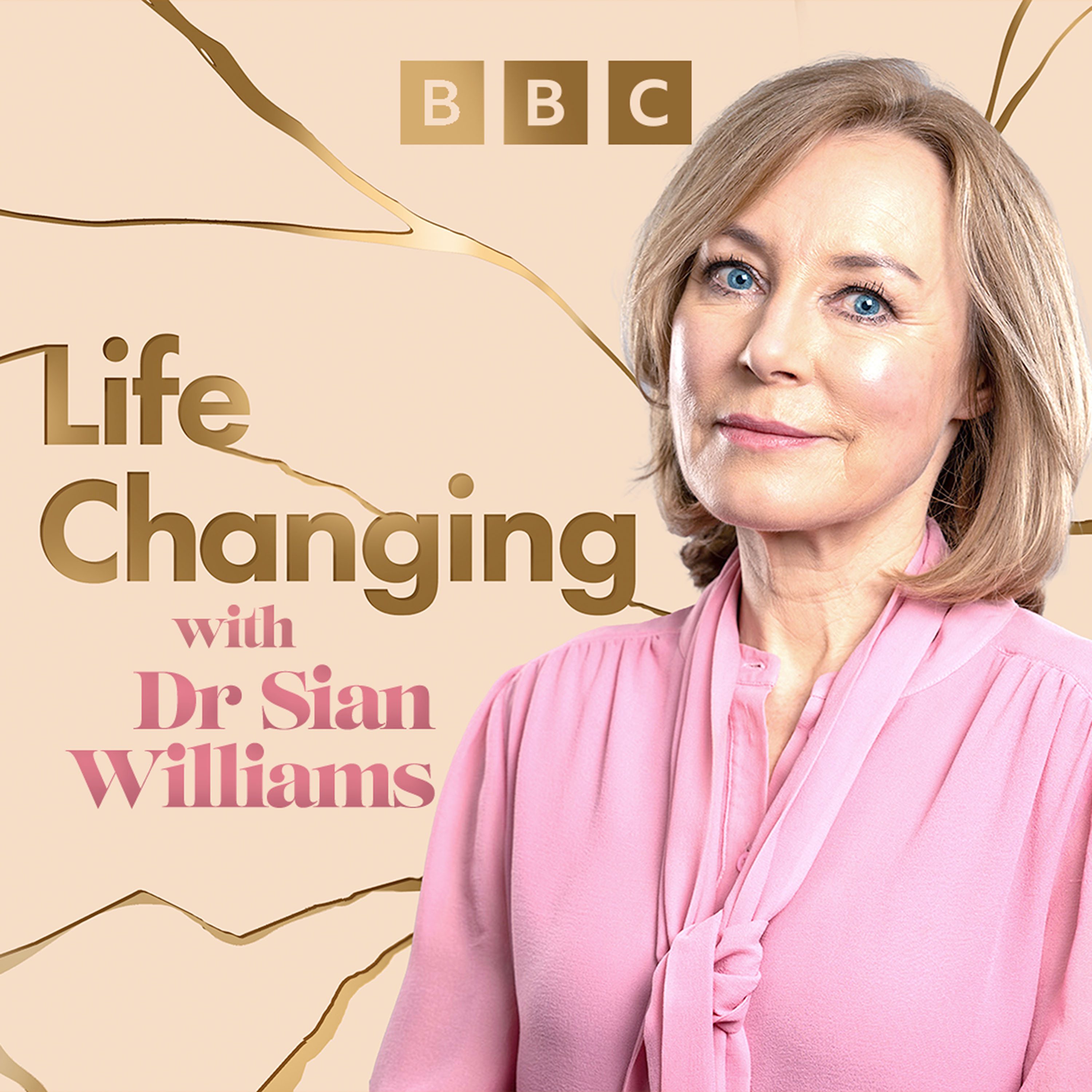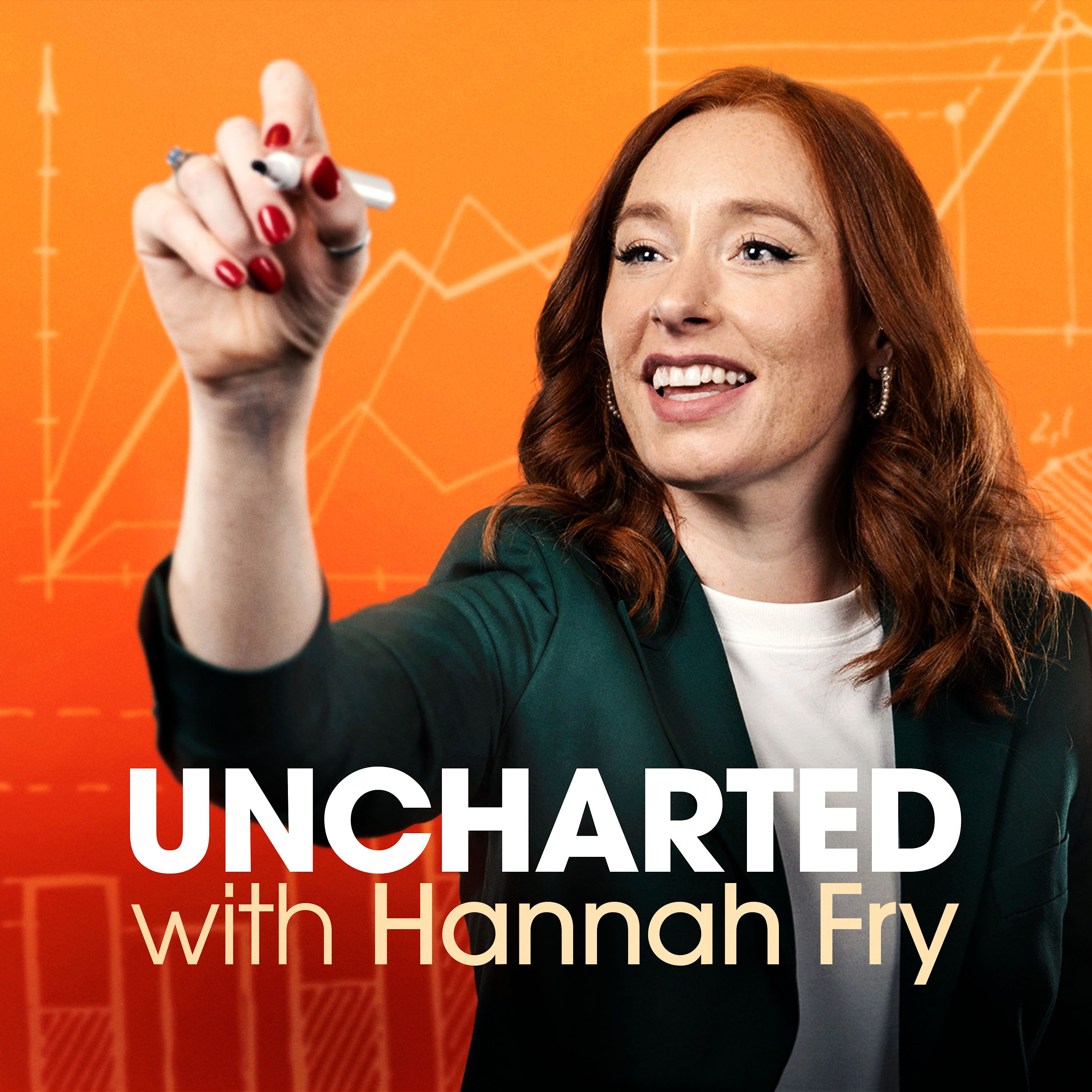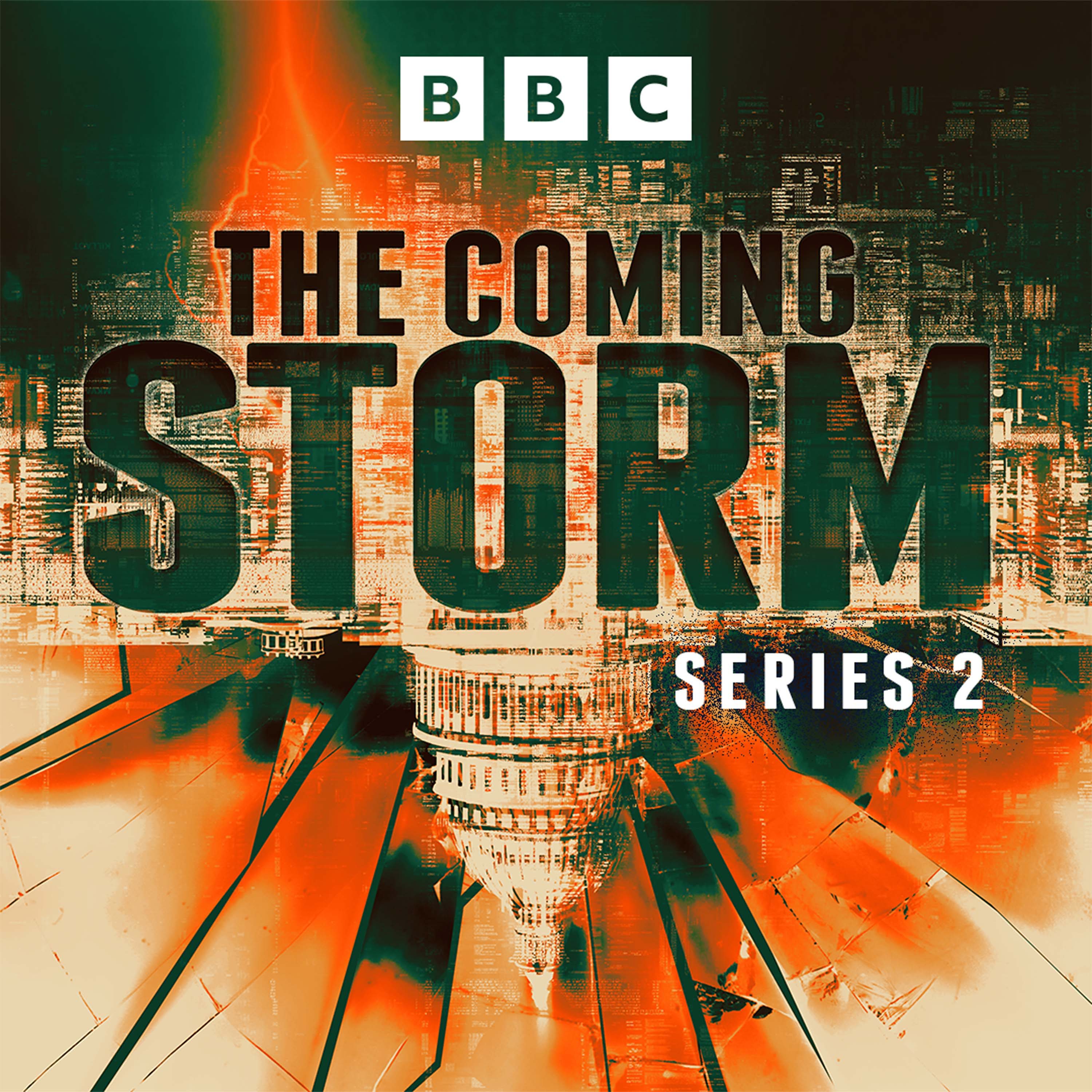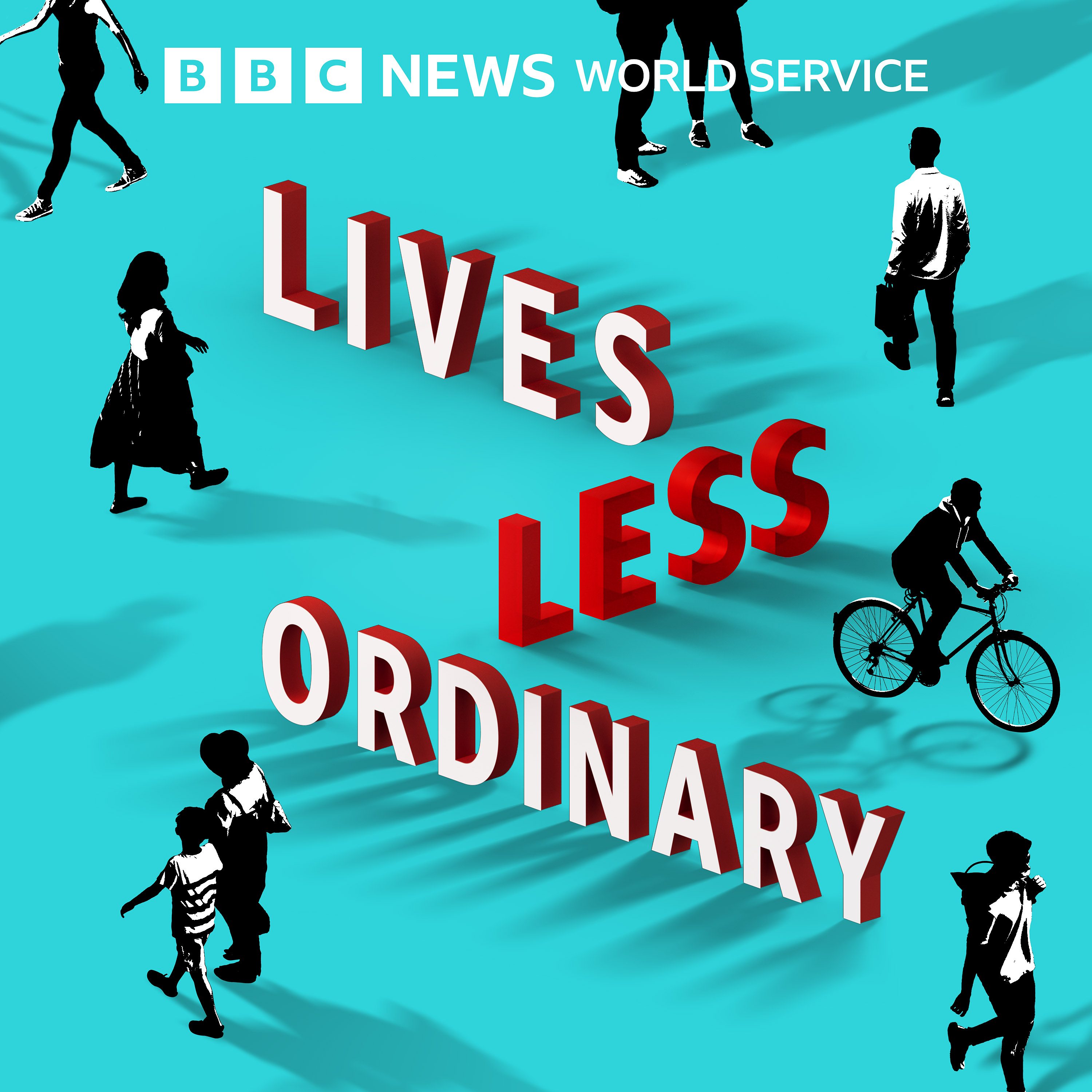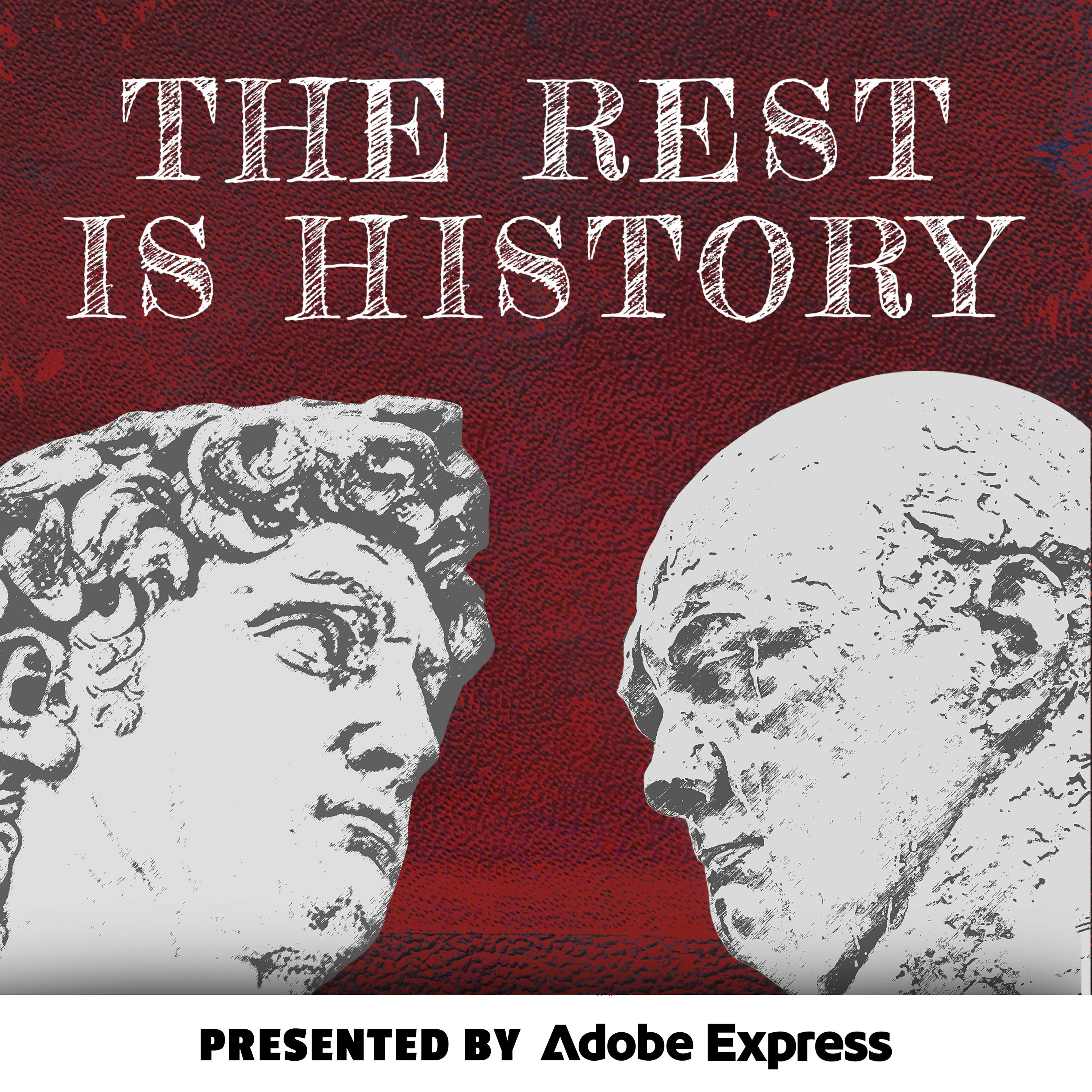
Brian's Run Pod
Welcome to Brian's Run Pod, the podcast where we lace up our running shoes and explore the exhilarating world of running. Whether you're a seasoned marathoner, a casual jogger, or just thinking about taking your first stride, this podcast is your ultimate companion on your running journey.
Join us as we dive deep into the sport of running, covering everything from training tips and race strategies to personal stories and inspiring interviews with runners from all walks of life. Whether you're looking to improve your race times, stay motivated, or simply enjoy the therapeutic rhythm of running, Brian's Run Pod has something for every runner.
Brian's Run Pod
From Casual Runner to Coach: Rachel Sinders' Journey
Rachel Sinders shares her incredible journey from a casual runner to a dedicated coach, explaining how running coaching creates sustainable plans that respect each person's lifestyle while helping them achieve their goals.
• Running coaches aren't about pushing people to exhaustion but creating manageable, personalized plans
• Many runners overtrain by running too hard too often without proper recovery
• Balancing high-intensity workouts with running training requires prioritizing your primary goal
• Personal injury experiences make Rachel a more empathetic, understanding coach
• Strength training (especially single-leg exercises) is crucial for runners, even just 20-30 minutes twice weekly
• Finding consistency in strength training matters more than complex exercise routines
• Mental aspects of running are increasingly recognized as crucial for performance
• Building community among runners provides motivation and support beyond individual coaching
• Rachel's coaching philosophy emphasizes quality over quantity and long-term relationships with athletes
If you're inspired by Rachel's approach to running, check out her coaching services or follow her journey as she prepares for the London Marathon and potentially Tokyo Marathon next year.
Brian's Run Pod has become interactive with the audience. If you look at the top of the Episode description tap on "Send us a Text Message". You can tell me what you think of the episode or alternatively what you would like covered. You might even get a mention!
Instagram
So you're thinking about running but not sure how to take the first step. My name is Brian Patterson and I'm here to help. Welcome to Brian's Rompod, welcome back to Brian's RunPod, and it's me, your host, brian Patterson, here with you Now. In the second part of my chat with Rachel Sanders, we dive into her incredible journey from a casual runner to a dedicated coach. She's going to share some amazing insights about what running coaching really is.
Speaker 1:Contrary to what you might think, coaching isn't about pushing people to the brink of exhaustion. It's about creating sustainable plans that respect each other's lifestyle and help them achieve their goals. By the way, I recorded the first part of our discussion last week, so if you haven't listened to it, make sure you do check it out now. Now let's get back into the episode which I know you're going to love. Does that differ from your online coaching? I mean, I'm not saying one's better than the other, but I mean do you find that you know you have to adapt your strategies of how you coach, you know, online compared to, let's say, person to person?
Speaker 2:No, not really. I feel like I can be.
Speaker 1:Yeah.
Speaker 2:So the people that I know locally here that I coach, I still do it all online for them.
Speaker 1:Oh, of course, I'm just able to see them in person.
Speaker 2:So no, I would say, whether or not you're here or you're somewhere else, you're getting the same level of care and communication from me, and everything that doesn't really differ.
Speaker 1:And do people have a? What sort of preconceptions when people come to you first of all um coming to a coach? I mean, I've never been to a coach, so do they have any preconceptions. You know, oh, my god, you know I'm going to be, you know, speaking to someone who's very fit and does a little running or whatever.
Speaker 2:Yeah, I think I hope that people that come to me see me either via social media or my website and see like I'm actually just like a normal everyday runner, like I went from, like I said, a three hour half marathon and I learned to get faster on my own, and I'm not, I think, to a coach, for some people can seem like, oh, they're gonna like make me run X miles per week and push me so hard, and I'm like it's not at all what it is. It's about meeting you where you are and helping you grow as an athlete. It's about keeping in mind, like, your life, your lifestyle, your job, everything else, and coming up with a running plan that's going to be help you meet your goals, be enjoyable and into your lifestyle. So I think a lot of people think, oh, coach me, like that's going to be too much, and no, I'm just, I'm really.
Speaker 2:It's for anyone. Yeah, like you don't have to be. I have people that I coach that are run walkers and I have people that I coach that don't even run races. They're just like I want someone to give me some workouts, keep me accountable, be there for questions. Like so it doesn't have to be that you're like planning to run this huge marathon in the coming coming months. It can just be that you need. You need some accountability partner, and that's what I can be for you, yeah I mean, are there any common?
Speaker 1:um? I suppose what I'm trying to get at is that um, what do you find, are you know, uh, when people are starting out, are there any common questions that they come to you at? Or, um, what advice you know, would you, would you give?
Speaker 2:I mean, I would say a lot of people that come to me are all pretty motivated individuals because they're like seeking something to help them grow right. A lot of people are the type that probably run too hard too often.
Speaker 2:So they just they go out and run and, oh, I'm feeling good today I'm going to run and my heart rate's really high, but I feel good. And then they go and do it again the next day. So it's a common problem that people are overtraining, I'd say. Or I don't know how much you guys have in the UK like different high intensity workout classes. We have a lot of different.
Speaker 1:Yeah, we do have quite a few yeah.
Speaker 2:Yeah, so I get a lot of runners that are like I want to train for this marathon.
Speaker 1:Yeah.
Speaker 2:But I also want to keep doing these high intensity classes, like four days a week. So it's about being like what is your priority right now in this season of life? If it's the marathon, then we got to focus on that and scale back from like you can't be doing high intensity classes four days a week and then running a workout and a long run. It's just, it's too much. So I would say doing too much and overtraining is a common problem yeah, so do people wonder why they they can't reach their goals when they're doing that.
Speaker 2:It's because your body isn't recovering.
Speaker 1:Yeah, you're I mean, did you, did you learn that? Uh, I'm not saying that you did that, but do you. But even when you were, learning. I for sure did that oh, you did, did you all right okay I did everything wrong, yeah well, that's the best way to learn, isn't it?
Speaker 2:yeah, absolutely. I mean I was doing the same thing I was going to. I mean, I'll be honest, when I was trying to train for my first marathon, I was doing high intensity workout classes, I was running. I got a stress fracture in my foot and I couldn't run. My first it was going to be Chicago and I got a stress fracture three weeks before the marathon when I did a 20 miler because I just didn't know what I was doing. But that's literally the best way and I, you know, along my journey of running I've had other injuries pop up and stuff. But I mean I obviously don't like injuries, I don't want that to happen, but I think that it helps me as a coach, like I can help others work through an injury or I'm relatable in that way. Like I've been there, I know how awful it is to be injured and not be able to run and I just think all my life experiences just can help others.
Speaker 1:Yeah, does that come more into your coaching? Now there is sort of the rehab bit, or do you say, well, go to this yeah, I mean it's so tricky because I'm not a doctor, I'm not a PT. Or a physio.
Speaker 2:Exactly so, like I can help and be like okay, let's cross train for a few days and then see how it feels. Let's just try a run walk to go back into it. But if something is bad I mean I'm like you have to go see someone, like I'm not here to diagnose your.
Speaker 1:I I try and stick in my lane as much as possible, like I don't want to um, but if someone's local to indianapolis, I have a great resources of people that I can say like I trust these individuals for you to go see if you want like a qualified opinion on what's going on and to get good treatment and stuff because I think a lot of stuff I know we're kind of jumping around here a bit, but I think it's great talking to you anyways but I mean a lot of I see, because um, uh, the thing I found, find uh more um, let's say, instagram or online is a lot of um stuff about mobility um and and that seems to be popping up, I don't know whether it's the algorithm or my, or whatever um and uh, we know you're 60 and you are gonna suffer with your head doing these things exactly so um, do you do?
Speaker 1:you do you see, know little trends coming up. You know, like that.
Speaker 2:Yeah, I mean I for sure think there's a bigger push for mobility type stuff. So as a running coach, I give you your running workout, but I still encourage you to find a strength training program that fits. So I ideally want someone to do some strength training about twice a week and then some mobility work. Personally, I use just a run like a strength for runners app myself.
Speaker 1:Right.
Speaker 2:That's like inexpensive. She gives me great mobility, workout and some strength. So I suggest that to my runners. I'm like, if that's not for you, you know, find something. That is because it's not something that we can just think we can get by and not do, because that's when issues pop up, especially you get when you get older. You know, yeah, yeah when you're, when you're 20 and so you, you use a particular app.
Speaker 1:Is that right? You?
Speaker 2:I do yeah, okay it's a strength for runners I just have a workout in my workout area, in my basement, and I do like a leg day, a full body day, sometimes arms mobility. It doesn't have to be huge and long and super intensive. I mean 20, 30 minutes is great.
Speaker 1:What's your? And something else which I do see a lot and I kind of talk to other people about it and sometimes I get a bit head up is um cadence. So people talk about cadence a lot. Is that something that you or have clients ask you about it, or is it something?
Speaker 2:you come about from time to time. Um, I don't run with athletes, so like if someone comes to me and is struggling with it. I know I've suggested before that there's different um apps that you can do. That's like the metronome, so it can help you with your cadence and stuff. So say, cause you know Garmin and stuff will tell you your cadence. If you look at the details someone's like oh 140, you know I's something you could look into.
Speaker 2:I don't dwell on it, I guess. Yeah, uh, if someone really wants to talk more about it, sure, let's have a conversation, but it's not something that I'm yeah drilling into people yeah, yeah, I know.
Speaker 1:Well, I was listening to a runner's world uh podcast the other day and you, I think they had a physio who uh for running and although it's the idea is you're supposed to reduce the risk of injury, injury prevention, but it you know there's no sort of rule of thumb. You know you should be doing a 180. You know cadence and if you're not doing that you're gonna get. You know you're gonna break a leg the next time you go and run.
Speaker 2:You know if you're doing 160 or whatever.
Speaker 1:So, um, I think it depends on the individual, because I know also.
Speaker 2:The other thing is you got every people at different heights, so you know somebody's exactly, and it's like I don't want someone to be so caught up in that that they change the way they're running and then they have another issue pop up. So it's like kind of like, if what you're doing is working for you, then just let's not mess with it.
Speaker 1:Yeah yeah, yeah. Do you find that when you do introduce people to kind of speed workouts or because sometimes I find those workouts, I can get more out of that than, let's say, going for a long? I don't know, 10K run at the weekend or something like that.
Speaker 2:I think, especially if someone comes to me and they previously haven't done any sort of speed work, you're going to see some really amazing gains once you introduce that. And some people, I think, are intimidated by the idea of 400 meter repeats or 800 meters. So I like with a new runner that's never done speed. I usually just suggest like time-based intervals and be like run hard for x amount of time versus like a distance I think, it's easier for a newer athlete to kind of digest that yeah, yeah, okay, and and um, how are you?
Speaker 1:do you like treadmills or not? Or you have, do you have an up-hate relationship?
Speaker 2:I have a treadmill oh, you do I don't I do I? We just actually just got a new one recently, at christmas time, because my old one was like 15 years old. Oh, my gosh um, because I don't I don't use it that much, but we did get a new one.
Speaker 1:Um, we got one of the peloton ones oh right, yeah finally someone who's um used the peloton yeah, so I did.
Speaker 2:I have used it now. Through the winter we had some pretty like really really cold days or icy, I don't really want to mess around with that. Mainly I do the like scenic run. So like I did, like you run New York City and it feels like you're there running it. So my kids now are 13 and 10. So they actually will use it sometimes too, like my daughter. She was like me, she doesn't like any sports really. So we're like, well, you need to do some like exercise or something so she likes using the treadmill and she'll just walk on it mostly and stuff.
Speaker 2:So it's nice to have. I think I have some runners that love the treadmill. I'm like I have no problem with that, like you, just you do what makes you happy, what works for you. It's a good tool if you need it, but personally I like to get outside. I just think being on the treadmill can be hard mentally for me. You just I like to feel myself going somewhere and I like to look around and see things.
Speaker 1:But the main selling benefit with the Peloton is that you're actually joining a live class. Is that right? You?
Speaker 2:can you?
Speaker 1:can Okay?
Speaker 2:If you like, they have a lot that are. All the classes are saved, so you can go back and do any classes that are already pre-recorded or you can join a live class and then you see, like your leaderboard, and see where you place compared to others really so that kind of helps like with motivation and just it can be fun yeah, and I have the bike. I have the bike too, which I actually use more probably.
Speaker 1:Okay, um, I suppose that's quite good yeah, for cross training and on the and the for for a beginner from the strength training side, what would you I know, I mean, let's say, if we were just giving someone some a little bit of advice, what would you advise?
Speaker 2:for strength yeah I mean as a runner, like a lot of single leg activities, when you're having to use more balance, I think it's so good okay, because when you're running you're on one leg at a time, so as much as you can practice that in your strength so say you're doing like a split squat or a single leg leg deadlift just anything where you also work on balance I think is huge. Um, anything to get your like glutes activated too is great. Um, hamstrings, quads, those are all great exercises and plyometrics, I suppose yeah, some, I'm not huge into that.
Speaker 2:I know that that can be very helpful, but I personally like, don't like too much jumping because I think it ends up hurting, like I know what my body can handle. Let's just say that. And I'm pounding a lot on the ground running, so I try to minimize my amount of jumping otherwise. But that's me.
Speaker 1:I suppose the best advice is at least once, twice, a week, to do some form of yeah.
Speaker 2:Yeah, yeah, I think find something that works for you and stick with it. I think consistency is the biggest thing and not just jumping around being random about what you do. But, like you know, it doesn't have to be complex. Like pick five exercises to do and do the same every week and try and add weight and you'll get stronger and what's your, what's your aspirations for the future?
Speaker 1:I mean for your, for your business, and you know what I know you're looking to, you're going to do london and I think you got. You think you're doing tokyo as well. Is that right?
Speaker 2:I would like to so personally. Yes, I'm doing London in six weeks and I'm very, very excited about that. So I actually studied abroad in London in college.
Speaker 1:Oh, where was that?
Speaker 2:Like six months at Westminster.
Speaker 1:Oh.
Speaker 2:Westminster.
Speaker 1:University. Is that right?
Speaker 2:Yeah, I did my MBA there. Is that right yeah?
Speaker 1:I did my MBA there.
Speaker 2:Oh really.
Speaker 1:Yeah.
Speaker 2:That's funny, yeah. So where I went to college here in Indiana, we had a program where we could go over there for six months and do a semester there, so I had like the best time. I love London so I've always been on my radar to get back there and do the marathon.
Speaker 1:Yeah.
Speaker 2:Um, so that's coming up. Then I get I would like to do Tokyo next year. Yeah, I'll figure out how to make that happen. Um, not sure. So that's my next big goal, um, london, Tokyo. As far as like coaching goes, I just I want to just continue like providing good coaching that I have, and that means not like overreaching myself and taking on too much. Like I really want my athletes to know that, like when they come to me, I care about them as a person and I want to get to know them and you're not just another like athlete you really you have like you mean more to me. So, um, so provide have a quality yeah
Speaker 2:over quantity. So I have a good amount of athletes. I don't need to grow the number, I just want to if some leave, you know have some new ones come on and whatnot, but maintain where I am. But I really love a lot of my athletes that have been with me for like five years or more. So I think it's really cool to see our relationship as a coach athlete grow and just really get to know them well, like some of my athletes joke that I know them like besides their significant other I'm the person that knows like I mean I know about bathroom issues and like every.
Speaker 2:You know everything so yeah, but I enjoy that because I want to be like their biggest stuff. So yeah locally. I have a good group of runners here too, so I've been loving that, like my group. We call ourselves Team RMR.
Speaker 1:Yeah.
Speaker 2:For Rachel and Michelle running. So they've gotten to know each other and they build each other up. So we're at like a local race and I'll do a morning meetup with everyone that's running.
Speaker 1:Right.
Speaker 2:And they don't have just me cheering for them, but they have a whole group of runners of this community that we've built, and just two weeks ago I did a running retreat here for my runners and brought together everyone on a Saturday from 11 to 5. I brought in four different experts in the industry from like strength training, standpoint nutrition and two people talking about mindset. So we had a day in person to not only learn from these people but share with each other, bounce ideas off each other, and then they were able to, if they want to follow up with these other individuals that are experts in their field, now they have a nutritionist that they can go to if they need more help or athletic trainer, so I really want to continue to build the community that I have here as well.
Speaker 1:Do you think that's something that's going to be like on those sort of sports psychologist type of thing? Is that something where, yeah, you know going forward, um, you know, for the everyday runner that's something that that maybe might catch on?
Speaker 2:so I mean, I know it's been professional, I mean I think, yeah, I mean, I think more and more people are are seeing like how mental running is and racing is and just how it's not just the physical, it's your mental state as well that goes into it, and it's just the more people learn about that, I think they'll have better success too. And it's not just race day, but it's like your training and how you look at a workout and how you feel about how you did and how what kind of like pressure you put on yourself or other stresses that you have in your life that are affecting you.
Speaker 2:That all goes together and like how you feel on a particular day especially with the advent of the ultra running, which is kind of exploded.
Speaker 1:Yeah, the last yeah, I mean.
Speaker 2:I mean that's so time consuming, so it's just like something's got to give. You only have 24 hours in a day, so but I do think it's great that there's just been more and more awareness about mental state and just all the different tools that we can use to really tap into that next level.
Speaker 1:Oh, brilliant. Now I hate, I hate to spring this on you, but I've got a couple of kind of quickfire questions.
Speaker 2:Okay.
Speaker 1:Do you have a sporting icon?
Speaker 2:I mean, I really love Des Linden. He's an American runner.
Speaker 1:All right.
Speaker 2:She won Boston in 2018, and I was not there. I was watching it on TV and it was huge because an American woman hadn't won Boston in a number of years and she's just an all around like, really good person.
Speaker 1:So I would say her okay, and do you have a favorite playlist or favorite music that you listen to?
Speaker 2:yeah, I'm like all over the place. I do make playlists a lot of times for races, but it's usually like so all over the place, like I like today's hits back to like 1990s okay, the country.
Speaker 1:I'm all over the place and do you, do you um? Do you have a specific running route that you always um? Or are you, or do you like to switch it around?
Speaker 2:depending I like to switch it up a lot. So I know from my house I can tell you like, if I go this way and then this like about how many miles it'll be, so I just like I always switch my. My husband runs too and he like literally does the same route every time, yeah, and then I tell him like oh yeah, I was over there. And I was over there. He's like what are you doing?
Speaker 1:I just love to wander around and, like you, never know what you're going to see and just look at houses and I always find when I go well, we, whenever we go um away uh, we tend to go into wales um and um, or wherever we go you're always kind of the first day there you're thinking, oh, I could probably go running that way. Or you know, having like a new route is so more energizing, whereas sometimes you know you keep on doing the same route.
Speaker 2:Well, especially when we go on vacation. I'm big into running, then, because I think that's like the best way to go see the city is go out for a run every morning and I get to see so much while everyone's just still in bed. It's my favorite thing, great.
Speaker 1:I hope you can stick around after we say goodbye, because I just got to ask you a couple of things. But I just wanted to say really thank you very much for coming on on board and saying you know, so I I really, I really, really, really really appreciate it and you've really given us a few insights into your coaching, how you got into the sport and and really I you know, hope for the best london and I hope it's every success. Have you got a time in mind or?
Speaker 2:I mean around 3 30 would be good oh, wow between 3 30 and 3 40.
Speaker 1:That would be good yeah, it won't be, and I can guarantee you it won't be. It won't be and I can guarantee you it won't be hot?
Speaker 2:Yeah, I mean, I should ask you. It's probably the ideal running weather, like what it should. Be good, you think weather.
Speaker 1:I think hopefully it should be, even if it's, I would think, because it's kind of we're going into spring.
Speaker 2:Yeah.
Speaker 1:And I think you know the conditions should be good.
Speaker 2:Okay, Well, that's, I mean yeah, and I think you know the conditions should be good. Okay, well, that's I mean.
Speaker 1:yeah, I mean it's hard to tell what the weather is going to be like in six weeks out, but I know I haven't started stocking the weather yet.
Speaker 2:Like, give me a few more weeks and I'll be checking the weather room religiously for race day, but hopefully it's good Um and it's good um, and I think I, just when I get to a big race like that, I am just like so excited and like my adrenaline is like through the roof that it just. It's so fun. I love big marathons. I mean, london is set to be the this year, the largest marathon ever their field is so big, yes, so it's going to be huge.
Speaker 2:The spectators are going to be out. It's just, it's so fun.
Speaker 1:Yeah, I think you'd be well. I mean, you've done New York and I suppose it's the same.
Speaker 2:Yeah, new York was pretty awesome too.
Speaker 1:Yeah, yeah, so no, that's great, okay. So, all right, we'll say goodbye to all our listeners. Um, thank you very much to listening and, as I said I'll usually. What I usually do is I'll split the podcast into two episodes, so you get two bites of the cherry, two bites of rachel hey thank you okay, thank you for having me cheers.

